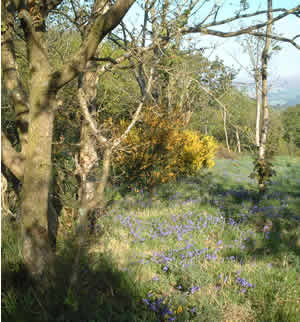Today we have a guest post by Gabriel Wyner.

Hi everyone! I wanted to share with you a project I’ve been working on to help folks learn languages faster. To help introduce it, let me give you some background on myself and what I do.
I’m an opera singer, and for my career, I needed to learn German, Italian, French and Russian. Over the course of studying those languages, I developed a language learning method that began to produce really phenomenal results: I was able to learn French to C1 fluency in 5 months and Russian to B2/C1 fluency in 10. This method eventually turned into an article at Lifehacker, which went viral and led to a book deal with Random House, and has basically turned my life upside-down (In a good way, fortunately! While I don’t have much time for singing, I adore writing and learning about languages!)
One of the central tenets of my methods revolves around pronunciation. I learn pronunciation before anything else, because once my ears are attuned to a language’s sounds, I have a much easier time memorizing vocabulary, and I don’t have to fight against bad, ingrained pronunciation habits when I’m ready to start speaking.
The tricky part in all of this is that effective pronunciation training tools are few and far between. For most common languages, there are some scattered YouTube pronunciation guides, perhaps a brief discussion in the front of your grammar book, but very little that’s comprehensive, systematic, and enjoyable to use. And there’s little to nothing that will successfully train your ears to hear sounds you haven’t heard before – subtle things like the differences between German’s “See” [ze:] and “Sie” [zi:], “Bahn” [ba:n] and “Bann” [ban], or German’s “mein” [maen] and English’s “mine” [maɪn].
However, there is research that describes exactly how to train ears to hear new sounds. It’s a pretty simple process: you find a pair of sounds that are tricky to distinguish (say, German’s mein and English’s mine), you play a recording of one of the words at random, guess which one you heard, and then see whether you were right. Every time you go through this cycle, your ears get better. And with a bunch of well chosen word pairs and good recordings, an app could take you through that cycle and teach you the pronunciation system of a language within a couple of weeks. I’ve made one using Anki for my own Hungarian studies, and it took me ~10 days at 20 minutes a day to get a handle on the [occasionally stupidly difficult] sounds of Hungarian (tyuk vs gyuk, kar/kor/kór, ad/add, has/hass…).
11 days ago, I launched a Kickstarter to fund development of this app. The campaign has done phenomenally well, funding in 2 days and doubling after day 7, which has allowed me to add all sorts of stretch goals and bonuses for all the backers of the project. I think this is going to be a wonderful and much-needed tool for the language learning community, and I’m excited about working on it. If you or anyone you know wish to learn languages, please do help spread the word. You can use these handy links below:
Share via Facebook | Twitter | Google+


